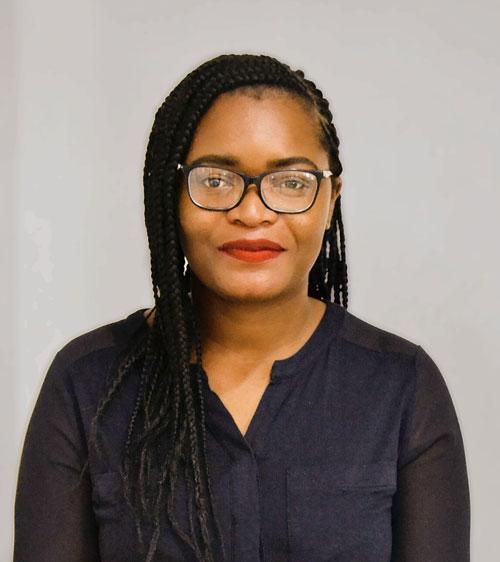Now works as: Land Restoration Start-up Founder & Director, Assistant Regional Agronomy Manager, Social Entrepreneur & Climate Change Activist
Now works for: Sustainable Farming Solutions Malawi and Universal Leaf Tobacco Company

Tonthoza “Tontho” Uganja started her MSc Tropical Forestry in 2016 with the support of a CSC scholarship and was awarded the Peter Henry Award for best MSc dissertation in Tropical Drylands when she finished in 2019. During her studies with us, and after, Tontho has been making a stellar career in agronomy and forestry working closely with small-holder farmers as an assistant regional agronomy manager for Limbe Leaf Tobacco Company. Yet her real career and passion has been happening outside of her ‘day job’. Tontho is the founder and director of Sustainable Farming Solutions Malawi and has recently participated in an intensive 3-day Climate Innovation Lab sponsored by the EU, where her team managed to be one of the winners of the competition. They have now been invited to the Climate Academy to launch their innovation.
Her work on various projects have inspired us so much that we invited her to share her experiences as contributor to Social Issues in Forestry Module. We love to learn as much from our students as we hope they learn from us.
"The MSc Tropical Forestry program gave me the brevity to start my own land restoration extension startup SFS. The MSc program helped me understand what my role should be, particularly in helping small-scale farmers and forest owners. I developed two projects here in the Northern Region of Malawi to create resilient communities. My old Bangor dissertation supervisor, Dr Eefke Mollee, is now an adviser on this project. SFS is developing a strategic forest management plan for the Kabwafu Trust which has over 3000 Ha of land and so we are documenting the experience to be completed and submitted for publication sometime in 2021. In October 2020, we presented part of our results at the FLARE twitter conference. This got us the attention of Simeon Max who works at ETH Zurich and has developed a free and open data platform called Restor - ecological insights for global restoration. When launched in 2021, Restor will enable restoration practitioners to analyze, monitor, and share their efforts. Our aim is to share our shapefiles for Kabwafu and hopefully put it on the map to solicit funding for the project.
"For the second project, we are working with small-scale farmers particularly women in a community called Kavuzi, the idea is to use small-scale farms as an approach to land restoration. We are introducing several interventions like beekeeping, garlic, and ginger production and soon we will be introducing sustainable cookstoves and pay-as-you-go solar systems subject to funding. A month ago we made noise in the public media and involved the current speaker of parliament in fundraising for the conservation of the same area which got us the attention of USAID and now we have been selected to participate in a development program with them that will hopefully get us funding to improve our pilot project and hopefully scale up our impact.
"I must say, I can't single out one module that is not proving to be invaluable with all of this. From the NTFPs module, Social issues in forestry, Forest monitoring & inventory, Agroforestry systems & practices, the Research and dissertation module, and many more including the Study tour; I keep referring back to the notes and experiences to make things work. I could not be more grateful for the connections I made and the valuable learning experience from the lectures and even my fellow students to the extent I applied again at Bangor for a PhD. I was accepted under the supervision of Dr James Gibbons because I want to model farming systems in the context of a changing climate starting with the projects I have already started. I am now applying for different funding schemes, including the CSC PhD Scholarship and hope to be successful in the coming months."
